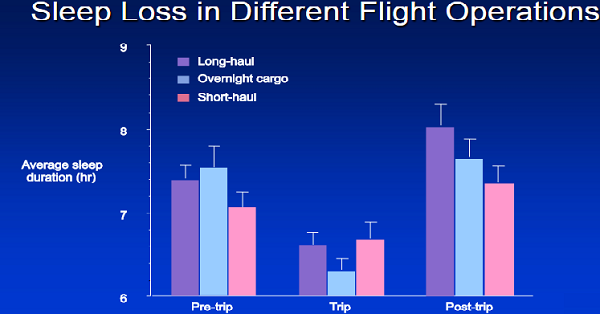As we may well be aware cognitive performance is our ability to utilize the knowledge acquired by mental processes in our brains. It is understood that even partial Sleep Deprivation (SD) may induce adverse changes in cognitive performance, and can influence attention and vigilance. The decrease in attention and working memory due to lack of sleep is well documented moreover several other areas are impacted including auditory and Visio-spatial attention.
A person’s quality of life can be disrupted due to sleep restriction which is continuous challenge in our aviation environment with around the clock working, unfortunately in such situations people tend to stretch their capacity and compromise their nightly sleep risking sleep deprivation.
Sleep is considered to essential for body restitution and tissue recovery. In addition, sleep is essential for cognitive performance, especially memory consolidation.
Sleep loss, instead, seems to activate the sympathetic nervous system, which can lead to a rise of blood pressure. People who are exposed to sleep loss usually experience a decline in cognitive performance and changes in mood. Performance of routine practice and repetitive tasks requiring vigilance becomes more error-prone when wakefulness is prolonged.
Our requirement for sleep typically varies between 7 and 8.5 h per day. The sleep-wake cycle, is regulated by two separate biological mechanisms. The two processes are:
Circadian rhythm, the regulation of the body’s internal processes and alertness levels (including the circadian drive for arousal and circadian alerting system), which is governed by the internal biological or circadian clock. Sleep-wake homeostasis, the accumulation of hypnogenic (sleep-inducing) substances in the brain, which generates a homeostatic sleep drive.
Circadian rhythms alone are not sufficient to cause and regulate sleep. There is also an inbuilt propensity toward sleep-wake homeostasis. Sleep-wake homeostasis is an internal biochemical system that operates as a kind of timer or counter, the longer we have been awake, the stronger the desire and need to sleep becomes, and the more the likelihood of falling asleep increases.
Addressing Sleep Deprivation
It is not possible to “borrow” and “payback” sleep. Moreover simply telling people they need more sleep has little if any impact. We should instead ensure that education becomes an essential element of our Fatigue Risk Management System FRMS to ensure an understanding of good sleep habits and including sleep patterns.
Sofema Aviation Services offers Aviation Fatigue Risk Management Training. For details please see here. For additional information please see www.sassofia.com or email: office@sassofia.com




